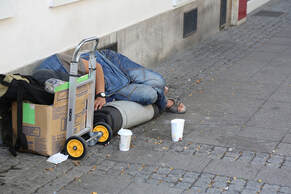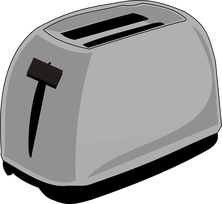|
EARLIER THIS week, at the urging of my 70-year-old bones, I bought a new mattress. Even better, I bought an adjustable frame. No more stacking pillows behind me to read or watch TV! In the first store I visited, the salesperson didn’t impress. I recognized some ineptly applied, medium-pressure tactics, and there were outright false claims about the healing power of sonic waves built into higher-cost frames. (In fairness, odds are she was only reciting what they’d fed her, that she believed, in training.) There was one high point. She said, “Let me show you the mattress my parents are on.” I said, “Are you sure we should disturb them?” It took a moment, but she actually laughed. It may have been a new experience for her. “This is my first stop.” I told her, “I’m going to do some comparison shopping. I may be back.” Which was true. I hadn’t ruled her out. At that point she all but fell to the floor and wrapped her arms around my ankles. I didn’t much care for that, and neither did my ankles. (Again, in fairness, I’m well aware that, in retail, letting a prospect leave usually means never seeing that prospect again.) The next store struck a refreshing contrast. The salesperson was pleasant, not pushy, and rolled well with what I flatter myself by calling my humor. They had the products I wanted, and the pricing stretched but fell within my budget. So I bought. I was prepared to wait a week or more for delivery, but my bed arrived the next day. Even more surprising, the delivery dudes were eminently pleasant and helpful—even though it was 7:30 p.m., 98 degrees Fahrenheit outside, they had one more delivery to go, and they’d been working since 7 that morning. Whoever heard of having a great experience buying and taking delivery of a bed?
0 Comments
Enough time with no repercussions has passed that I feel I can safely share this. It happened a few weeks ago.
I had pulled up to a T intersection, waiting for traffic to clear so I could make a left. Traffic was unusually heavy, so I was there for a while. In time, along came a pedestrian. The car behind me meant I couldn’t back up, and the moving wall of vehicles in front of me meant I couldn’t pull forward. Sorry dude, I thought, but you’ll have to walk around me. Nope. He headed straight for me. I thought, Panhandler? Yikes, I thought as he drew closer, is he going to going to rob me? Are my doors locked? Oh, good. They are. Clunk! He’d walked straight into my car door. A bewildered look crossed his face. Seeming to collect himself, he tried to walk forward again. Clunk! Once again into my door, once again with the bewildered look. I wondered, Insurance scam? Will he claim I hit him? Nope again. Re-collecting himself, this time he successfully walked around the back of my car, found the sidewalk on the other side, and kept going. He appeared unhurt. I suspect he was very, very high on something. Later, when I checked, I saw that my car door bore no evidence of the encounter.  No one wore shorts in my first grade class. I don’t know why. Just no one did. So when Charles showed up one morning sporting brand-new shorts, the class burst into laughter. Including, I’m ashamed to admit, me. Charles walked to his desk, sat down, and cried. We came quickly to our senses, stopped laughing, and were extra nice to him the rest of the day. Good thing there were no standup comedians among us, keeping it up, saying, “They’re just jokes.” When comedians target the marginalized, the audience laughs, laughs, laughs. Then everyone goes home or turns off the TV. What they don’t see? That somewhere is a Charles who walks to his desk, sits, and weeps. That’s if he’s lucky. If he’s less lucky, he gets publicly scorned, refused service, barred from a public restroom, or disowned. Or gets the shit beat out of him. Or worse. All emboldened by so-called “edgy humor.” To this day I wonder if Charles remembers that moment, if it still bubbles up and hurts him anew from time to time. It would me.  RIDING HOME on the bus some years ago, I overheard a fellow several rows behind me regaling passengers with joke after joke to the effect that female students attending a local university were overweight, unsightly, or both. I’d already heard a good many of the jokes. I had, until then, even repeated some. Cranking my head around for a look at the source of the hilarity, I beheld about as overweight and unsightly a specimen as ever took a breath. Said specimen was in no position to joke about others’ looks. And, I realized, neither was I. With that, I was done with jokes of that sort. It took a little longer for me to figure out that “not being in a position to joke about it” isn’t really the problem. The problem is that the only difference between a group guffawing at “humor” of this ilk and a circle of playground bullies taunting an unlucky kid is that the unlucky kid isn’t physically present. It is nonetheless just as wrong-headed and, in the long run, just as harmful. No matter that the kid isn’t physically present. The taunting will find its way there in one form or another. Humor with a point to make or a target to hit spreads, bolstering the like-minded and helping to make converts of others. If the point is humane, all the better. But an inhumane point spreads and swells just as fast. All it needs to erupt and cause real harm, from discrimination to physical violence to inequitable laws, is for one bully to gain prominence and endorse such talk as “telling it like it is” or “saying what must be said.” And for comedians to offer flimsy excuses like “it’s just jokes,” “lighten up,” and the scoundrel’s perpetual whine, “it’s my free speech.” That bus ride was the beginning of my realizing that humor targeting appearance, ethnicity, gender, sexual orientation, disabilities, etc., isn’t funny. It hurts people. I enjoy writing humor. One magazine even went so far as to make me its humor columnist. But the above-described epiphany meant giving up what I had thought were some great lines. I don’t miss them. • • •
 I have come to know a number refugees from a nation under the severe rule of a larger, more powerful neighbor. (To protect the safety of the families the refugees left behind, I will not name either country.) Every one of them—most as children—escaped by walking over staggeringly tall, snow-capped mountains. Finding temporary refuge, they worked, scrimped, struggled with a new language, and eventually crossed the ocean to the U.S. A cardinal rule while crossing the mountains, they tell me, is to keep moving. The area is heavily patrolled. Should a member of your group break a limb, fall into a river, or what-have-you, you move on. To stop to help is to expose all to risk of capture. They describe terrible conditions in their homeland. One man, now in his early 40s, was severely beaten by police for hoisting his country’s flag over his school. He was 14 and departed soon after. For their own safety, his parents explained his disappearance by telling authorities he had died. Others tell me of jail time, fines, and beatings for displaying the “wrong” religious symbols in their homes. When my refugee friends video conference with family in their homeland, knowing the calls are monitored, they take care not to identify themselves by name and not to display flags or religious symbols lest they expose their families to risk of beatings, fines, and jail. Their gratitude and relief for being in the U.S. is immeasurable. One 30-ish man--who trekked across the mountains at age seven!—told me, “I understand your criticism of U.S. politics. But I have to tell you, this is like heaven to us.” I saw his point and let it rest. This was a time for listening and empathizing, not for pointing out that “things could be worse” is no argument for complacency, for the need for vigilance lest the worse that things could be become reality. I’m pointing it out here, to the rest of us, instead. * * *
Now and then I stumble upon and jot down noteworthy quotes. But what’s the use if I never share them? Please enjoy my personal collection from the section I call “enviable insults.” I’ve never wished a man dead, but I have read some obituaries with great pleasure. —attributed to Mark Twain, but more likely from Clarence Darrow
He looks like the collective nightmare of every Hooters waitress ever. —Unknown If soldiers had killed Escoffier’s family in front of him and then forced him to make dinner, this is what he would have cooked. —NYT food critic Peter Wells I have neither the time nor the crayons to explain this to you. —Unknown People like you are the reason we have middle fingers. —Unknown He had few inferiors when it came to dealing with newspaper correspondents. —a newspaper columnist describing Andrew John Volstead of Volstead Act fame You’re about as useless as an asshole with tastebuds. —Unknown He excels at utterly missing the point and dragging out ad nauseam his endless nitpicking, all while looking in the mirror and admiring how reasonable and smart he must look. —Steve Cuno Do I want him to have a second chance after all this time? Nope. Truth be told, I’d much rather watch him try to put ointment on the genitals of a fully alert wolverine in a closet. —Robert Kirby re a recently paroled convict You have too much blood in your caffeine. —Noah Lugeons I would like to see him returned to the equine alimentary canal from which he descended. —Steve Cuno A racist scrotum dipped in Cheetos —Patton Oswalt’s description of Trump Scrotum designed by Salvador Dali —@factbasedliving, a winner of the Scathing Atheist Podcast’s “Describe Jeff Sessions in Five Words or Less Contest” I have heard flatulence with better diction. — Noah Lugeons on The Skepticrats Podcast If he had been given an enema, he could have been buried in a matchbox. —Christopher Hitchens on the death of televangelist Jerry Falwell I’d agree with you, but then we’d both be wrong. —Russell Lynes It’s people like you that give people like you a bad name. —Marvel character Jessica Jones I’d rather give birth to a porcupine backwards than be like him. —Jeff Bacon You geriatric asshole! I hope you choke on your fiber. —Tyson Swayt You look like Freddy Krueger face-f***ed a topographical map of Utah. —Weasel to Wade Wilson in Deadpool The next thing he says dislocates my irony bone. —PZ Myers People who go into hamburger management always look as if their mother slept with Goofy. —Bill Bryson, A Walk In the Woods Utah State Senator Weiler during a hate crime hearing: “Is being a BYU fan a hate crime?” Senator Thatcher: “No, it’s a disability.”  To create art is to risk. In writing, passive voice is to be avoided. Resolved: Henceforth, any mystery writer who puts “There’s still one thing I don’t understand“ in the mouth of a character at the wrap-up of the denouement shall be subject to a sound slap, a wagging finger in the face, and a thorough scolding. There should be mandatory jail time for writers who pen “with every fiber of [possessive pronoun] being.” Authors who write “it is what it is” should sit in a corner and not be permitted to speak or write for 90 days while they ponder the seriousness of their crime. If I berate you for not knowing that vault has two different meanings, is it an ad homonym attack? If I berate you for using there for their, is it an ad homophone attack? Novelists who switch between first and third person voice from one chapter to the next should not be permitted to live. Sometimes alliteration marks good writing. More often, it’s a simple show of sophomoric syntactical silliness. More people should write, but fewer people should publish. Robert Louis Stevenson has a nightmare about Jeckyll and Hyde and writes a bestseller. I had a nightmare about weak coffee. What I am supposed to do with that? I like picking up a new word here or there, so I don’t mind an author who on occasion sends me to the dictionary. But the fellow who penned “absquatulated” where “fled” would have sufficed deserves a slap. I’m unimpressed when people say, “I just finished my first novel.” Unless they mean writing, not reading. Proposed: That the next screenwriter who places “This isn’t over yet” in the hero’s mouth be subject to administrative leave without pay and not less than 120 hours of community service. No real hero would say that. Besides, unless the end credits are rolling, it’s implicit. Thanks to movies, I'm not afraid of being held against my will. I know that in every secure facility is a ventilator shaft big enough for an adult to crawl through. I look forward to the day I see a novel advertised, “Now a minor motion picture.”  THE PORTLAND (OREGON) CITY COUNCIL just passed a new suite of Go Be Homeless Someplace Else laws. Now, when the unhoused camp overnight on public lands, they must pack up and leave by 8 each morning. Also, according to The Oregonian, the unhoused may no longer camp near “pedestrian plazas, shelter and construction sites, high-speed roads, parks, greenways and numerous other locations.” Great. Let’s make their life harder. Let’s heap upon them further inconvenience—and further humiliation—by treating them as a blight to be removed rather than as human beings in crisis. And let’s limit where they can sleep to anywhere that isn’t somewhere. That’ll sure learn ’em not to have fallen victim to whatever convergence of misfortune left them unhoused in the first place. Despite what you may hear from the uninformed and the empathy-deprived, homelessness is not the first resort of the Too Lazy to Work. In fact, homelessness is rarely if ever voluntary. That’s why vagrancy and Go Be Homeless Someplace Else laws don’t make a dent. What they do, and not well, is spare the rest of us from having to look at and reconcile our consciences to a human tragedy that we have the means but, it would seem, not the will to mitigate. To reduce homelessness, we must address economic factors that converge in bringing it about: a ridiculously low minimum wage, a broken healthcare system, systemic racism and sexism, mindless persecutions heaped upon the LGBTQ+ community, a punishing welfare system, out-of-control housing costs, and mental health issues*, to name a few. We haven’t a homelessness problem. We have a broken economy problem, an empathy problem, and a NIMBY problem. *Beware the too-easy out of invoking mental health as the cause of homelessness. It can equally or perhaps more so result from it, as well as from the cited economic factors.  I WAS well overdue for a new toaster. Nothing fancy. Just one of those basic thingies with two slots, a slider, and a lightness-darkness knob. Off to the store I went. Not so fast! As I surveyed the shelf of toasters at my friendly neighborhood Target, it became clear that the age of smart devices had caught up to the noble toaster. Today’s toasters come with at least 47 LED buttons for producing perfect bagels, English muffins, pop tarts, frozen pizza, dating advice, movie reviews, directions to the nearest public restroom, ED pills, dad jokes, curling irons, stock market tips, and more. Oh, and if you absolutely must, they can make plain-old, everyday toast. Some models have touch screens. And one, according to the box, even has “advanced toast tech.” What a relief. The last thing I want is a slice of toast made with outdated tech. ▪️▪️▪️
 In 2021, a few months before the publication of my book about prostitution in Mormon Utah, I published a short book about the Mormon Church’s Articles of Faith. Although I hadn’t been shy in writing about the Mormon Church, this effort lands more of a direct hit than my articles and other books. Finding it therefore a bit off-brand for me, I issued it under the pseudonym O. B. Sirius. “O. B.” is short for Obadiah Bogderry, a spooneristic play on Obadiah Dogberry, a pseudonym from Mormon history. But then I got to thinking. I said to myself, What brand? Who do you think you are? So, last week, I re-issued the book under my name. (Sorry about that, O. B.) It’s called Honest Chaste True Benevolent Yada Yada Yada: Wackadoodle beliefs the Mormon Church’s Articles of Faith are meant to hide. It’s funny and readable, but accurate. I painstakingly footnoted it for the benefit of any who might wonder if I was inventing or exaggerating Mormon doctrine and history. Both O. B. and I would be grateful if you’d read it and leave a review. Available on Amazon* by clicking here or on the image above. __________________ *If you have reservations about Amazon, I hear you. It’s what I have to work with. |
Welcome to Cunoblog... where I share thoughts about writing. I don’t consider myself a writing authority, but that doesn’t keep me from presuming to blog like one. Oh, and I reserve the right to digress when I feel like it. Archives
July 2024
|



 RSS Feed
RSS Feed